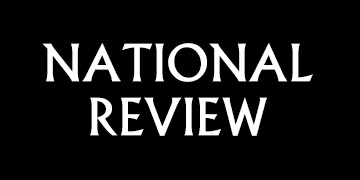ICYMI: Ernst Exposes Kamala Harris’ Empty Promises to Small Businesses
“Kamala Harris’ campaign promises to small businesses are more fiction than reality, according to a new report by the Senate Small Business and Entrepreneurship Committee.”
WASHINGTON – In case you missed it, National Review broke down a new report commissioned by U.S. Senator Joni Ernst (R-Iowa), the top Republican on the Senate Small Business and Entrepreneurship Committee, exposing Kamala Harris’ empty promises and radical agenda that has hurt American small businesses.
In the report, Senator Ernst conducts a deep dive of the troubling trend of small businesses getting squeezed out of the federal marketplace, despite Kamala Harris’ claims otherwise.
In August, Senator Ernst hosted an entrepreneur expo to bring hundreds of Iowa small business owners together to hear from speakers, join breakout sessions with federal agencies, and get small businesses back in the federal contracting game.

Kamala Harris Hasn’t Delivered on Her Promises to Small Businesses, GOP Senate Report Claims
By: Haley Strack
Kamala Harris’s campaign promises to small businesses are more fiction than reality, according to a new report by the Senate Small Business and Entrepreneurship Committee.
Commissioned by ranking member Senator Joni Ernst (R., Iowa), the report compares Harris’s campaign aspirations for small businesses with the work she’s done in the past three and a half years as vice president.
Although Harris’s website says that she will “increase the share of federal contract dollars going to small businesses,” since Harris has been vice president, the number of small businesses contracting with the federal government has steadily decreased. In 2020, the number was 94,044; in 2021, it was 88,790; in 2022, it was 85,014; and in 2023, it was at its lowest, 84,053. The federal government has seen about a 50 percent decrease in its small-business vendors since 2008.
“Despite declining engagement, the reported government dollars allocated to remaining small businesses is increasing,” the report says. “Since FY 2015, the U.S. Small Business Administration (SBA) has reported yearly increases in government-wide small business spending. These awards totaled $90.7 billion in FY 2015, $100 billion in FY 2016, $105.7 billion in FY 2017, $120.8 billion in FY 2018, $132.9 billion in FY 2019, $145.7 billion in FY 2020, $154.2 billion in FY 2021, $162.9 billion in FY 2022, and $178.6 billion to small businesses in FY 2023. This trend seems to indicate a willingness within the USG to award contracts to small businesses. In reality, it signals an unhealthy consolidation within the federal supplier base and an entrenchment of established contractors capturing a growing market share of overall small business dollars, to the detriment of new and emerging firms seeking to capture the same market share.’
Harris plans to increase the deduction on start-up expenses, and has promised to secure 25 million new small business applications if she becomes president. But Harris’s expanse of government programs for small businesses isn’t enough to offset the harm inflation has imposed upon those businesses, the report suggests.
“Kamala Harris claims to be a friend to mom-and-pop shops, but she has delivered nothing but price hikes and miles of red tape,” Ernst said. “She loves to talk about creating an opportunity economy, but the only opportunities are for those aligned with the Green New Deal agenda, including Chinese manufacturers. Unlike Kamala Harris, I have worked to enact real solutions to make life easier for job creators and expand opportunities for the heartland to contract with the federal government and reverse the troubling trend of small businesses getting squeezed out of the marketplace.”
The Biden-Harris Small Business Administration announced in September that it would accept applications for Small Business Lending Company (SBLC) licenses and Community Advantage (CA) SBLC licenses, programs the administration said would prioritize “reducing climate change.”
“The levers of government should never be used to pick winners and losers based on political priorities. Instead of wasting tax dollars on another Green New Deal program, the SBA needs to prioritize lowering costs for the millions of small businesses struggling from the Biden-Harris 20 percent inflation price hike,” Ernst said in a statement.
Meanwhile, Ernst has proposed the Accountability and Clarity in Contracts to Engage Small Business Suppliers, which she says will make federal contracting opportunities accessible for small businesses, and “ensure the participation of a broad spectrum of small businesses across all industries.”
###
